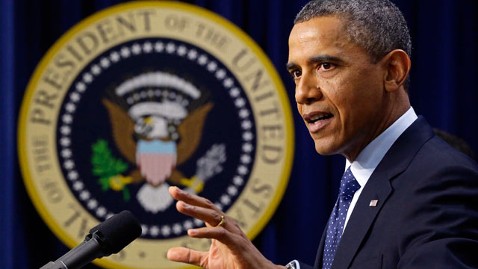Read more: "2013 Smart Guide: 10 ideas that will shape the year"
Dig deeper, look closer and think harder – these are the goals of New Scientist's in-depth articles. Each one is perfect for saving in your favourite read-it-later app and curling up in front of a glowing tablet for a good long read.
These are our editors' picks of our best features of the year, and all are prime examples of the amazing breadth of big ideas that were ripe for the tackling in 2012. When you have finished digesting these readable meals, visit our in-depth articles archive if you're hungry for more.
Richard Webb: "You might not have heard of the algorithm that runs the world." I certainly hadn't, or that its mathematical foundations are starting to look a little wobbly. An eye-opening examination of how seemingly abstruse mathematics is in fact deeply embedded in modern life: "The algorithm that runs the world"
Sally Adee: Gastric bypass surgery is the best surgery you're not getting, said Dr Oz on his popular medical advice show in the US. Because of enthusiasm from people like him, this operation has become massively popular – but by whimsically hacking at our stomach, might we might be messing with a system far more complicated than anyone really understands? Samantha Murphy had the surgery and began to realise that losing 45 kilograms could come with some profound neurological trade-offs: "Change your stomach, change your brain"
Michael Le Page: Nowadays most people either haven't heard of the 1970 book The Limits to Growth, or believe – wrongly – that the research it was based on has been discredited. But the main message of Limits is perhaps more relevant than ever – that a delayed response to mounting environmental problems leads to catastrophe further down the line: "Boom and doom: Revisiting prophecies of collapse"
Richard Fisher: This is a simple story about a scientific mystery. Strange rumbles, whistles and blasts have been reported all over the world for centuries. In New York state, they are called "Seneca guns"; in the Italian Apennines they are described as brontidi, which means thunder-like; in Japan they are yan; and along the coast of Belgium they are called mistpouffers – or fog belches. Yet the cause is often unexplained – what on Earth could be behind them? "Mystery booms: The source of a worldwide sonic enigma "
"
Valerie Jamieson: It's been a sensational year for particle physics, but the Higgs boson isn't the only fascinating particle in town. Meet 11 more particles that change our understanding of the subatomic world: "11 particles for 11 physics puzzles "
"
David Robson: What is the secret of the legendary "flow state" that seems to mark out genius in everyone from piano virtuosos to tennis champions? With the latest brain stimulation techniques, it may soon be within everyone's reach, and Sally Adee writes with panache as she describes her own use of the technology during a terrifying marksmanship training session. This has everything I want to read in a story – drama, a revolutionary idea and some practical advice for anyone to try at home: "Zap your brain into the zone: Fast track to pure focus"
Graham Lawton: The writer of this article, Christopher Kemp, is a self-confessed lover of marginalia – nooks and crannies of science that are often overlooked. But as this beautifully written story reveals, those nooks and crannies often contain rich and fascinating material. Material, in fact, like ambergris: "Heaven scent: The grey gold from a sperm whale's gut"
Ben Crystall: Many people may remember the wonder material Starlite from an episode of BBC TV's Tomorrow's World – it seemed to have a miraculous ability to withstand fire and heat. So what happened to it? In this feature Richard Fisher uncovers the strange tale of Starlite and its eccentric inventor Maurice Ward, and on the way reveals fascinating details about Ward and his creation. And though Ward is dead, the story may not be over – it now looks like Starlite could get a second chance… "The power of cool: Whatever became of Starlite?"
Clare Wilson: I enjoyed working on this feature the most this year because to me it truly represents the future of medicine. New Scientist often predicts that some new medicine or technology will be available in five years' time. When it comes to using gene therapies or stem cell therapies on babies in the womb – the subject of this feature – the timeline is probably more uncertain, yet I don't see how anyone can doubt that some day it will happen: "Fetal healing: Curing congenital diseases in the womb"
If you would like to reuse any content from New Scientist, either in print or online, please contact the syndication department first for permission. New Scientist does not own rights to photos, but there are a variety of licensing options available for use of articles and graphics we own the copyright to.
All comments should respect the New Scientist House Rules. If you think a particular comment breaks these rules then please use the "Report" link in that comment to report it to us.
If you are having a technical problem posting a comment, please contact technical support.


















